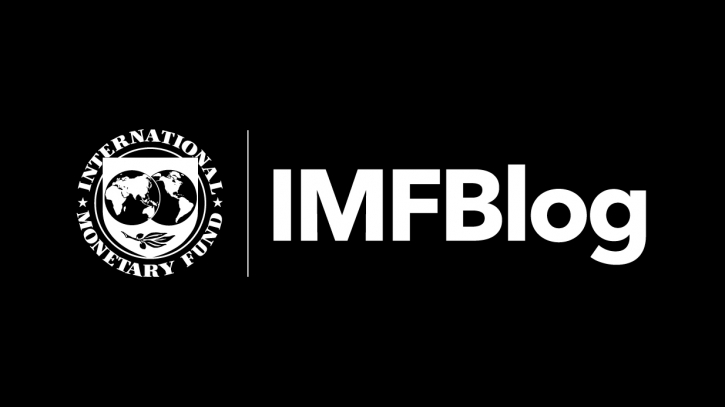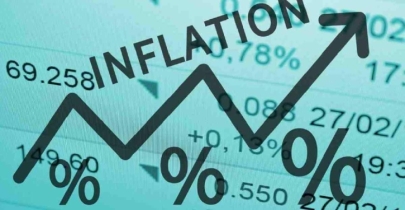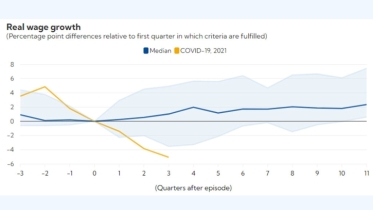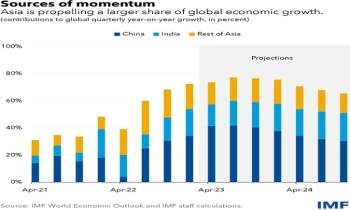Continued strong policy action to combat uncertainty
Kristalina Georgieva || BusinessInsider

Logo of IMFBlog
As G20 leaders meet virtually this week, the global economy faces a critical juncture. Countries have started to climb back from the depths of the COVID-19 crisis. But the resurgence in infections in many economies shows just how difficult and uncertain this ascent will be.
The good news is the significant progress on vaccine development. While there are many caveats, this raises hopes of vanquishing the virus that has taken more than a million lives and caused tens of millions of job losses.
The not-so-good news is the severity of the pandemic and its negative economic impact. Last month, the IMF projected a historic global GDP contraction of 4.4 percent in 2020. And we expect a partial and uneven recovery next year, with growth at 5.2 percent.
Data since our latest projections confirm the global recovery has continued. For many economies—including the United States, Japan, and the Euro Area—economic activity in the third quarter turned out stronger than expected.
But as the IMF’s note to the G20 leaders’ summit points out, the most recent data for contact-intensive service industries point to a slowing momentum in economies where the pandemic is resurging.
In other words, while a medical solution to the crisis is now in sight, the economic path ahead remains difficult and prone to setbacks.
On the upside, faster-than-expected containment of the virus or the development of better treatments would allow for a quicker return to normal activity, limit economic scarring, and boost growth.
On the downside, if new outbreaks require more stringent mobility restrictions, or if the development, production, and widespread distribution of vaccines and treatments is delayed, social distancing will persist for longer. As a result, growth will be lower, public debt higher, and the scars on the long-term potential of the economy more severe—think of how extended job losses can harm the human capital of workers.
That is why we need continued strong policy action to combat continued uncertainty.
Success here depends on us acting swiftly—and acting together. I see three key priorities: (i) end the health crisis, (ii) reinforce the economic bridge to recovery, and (iii) build the foundations of a better 21st-century economy.
First, end the health crisis.
The resurgence in infections is a powerful reminder that a sustainable economic recovery cannot be achieved anywhere unless we defeat the pandemic everywhere. Public spending on treatment, testing, and contact tracing is now more important than ever.
So, too, is cooperation across borders to lower the risk of an inadequate supply of vaccines, treatments, and tests. This means stepping up multilateral efforts on the manufacturing, purchase, and distribution of these health solutions—especially in poorer nations. It also means removing recent trade restrictions on all medical goods and services, including those related to vaccines.
We estimate that faster progress on widely shared medical solutions could add almost $9 trillion to global income by 2025. This would help narrow the income gap between poorer and richer nations at a time when inequality between countries is set to increase.
Second, reinforce the economic bridge to recovery.
Led by G20 countries, the world has taken unprecedented and synchronized measures that put a floor under the world economy, including $12 trillion in fiscal actions and massive liquidity support from central banks. Financing conditions have eased for all but the riskiest borrowers.
Given the gravity of the crisis, we need to build on these measures. Many developing nations continue to face a precarious situation, largely because of their more limited capacity to respond to the crisis. And globally, economic and financial uncertainties remain high. For example, elevated asset valuations point to a disconnect of financial markets from the real economy, with inherent risks to financial stability.
Furthermore, much of the fiscal policy support is now gradually waning. Many lifelines such as cash transfers to households, job retention support, and augmented unemployment benefits have expired or are set to expire by the end of this year. This comes at a time when employment losses from the crisis are still projected to be sizable. In the global tourism sector alone, up to 120 million jobs are estimated at risk.
So, how can we reduce uncertainty and strengthen the bridge to recovery?
1. Avoid premature withdrawal of policy support. In some economies—there is room for further fiscal support next year beyond what is currently budgeted. For countries with limited fiscal space, it will be critical to prioritize and reallocate spending to protect the most vulnerable. Equally important is continued monetary accommodation and liquidity measures to ensure the flow of credit, especially to small and medium-sized firms, complemented by appropriate financial sector policies. This would help support growth, jobs, and financial stability.
2. Prepare now for a synchronized infrastructure investment push, once the pandemic comes under better control to invigorate growth, limit scarring, and address climate goals. Where slack remains high, this kind of public sector investment can help move economies toward full employment while strengthening private sector productivity.
Moreover, new IMF staff research shows large potential gains when G20 countries invest at the same time. If those with the largest fiscal space were to simultaneously increase infrastructure spending by ½ percent of GDP in 2021 and 1 percent of GDP in the following years—and if economies with more constrained fiscal space invested one third of that—they could lift global GDP by close to 2 percent by 2025. This compares with just below 1.2 percent for an unsynchronized approach.
In other words, if countries acted alone, it would take about two-thirds more spending to achieve the same outcomes. The bottom line is that we can build the impetus for growth, jobs, and address climate change, far more effectively if we work together.

Third, build the foundations of a better 21st-century economy.
The most consequential uncertainty facing us today is this: how can we use this moment of disruption to build a better economy for all? This was the focus of world leaders when they gathered at the Paris Peace Forum last week, and it will be top of mind for G20 leaders.
We all recognize that environmental sustainability must be a key building block of a more resilient and inclusive economy. It requires a powerful combination of measures, including a green investment push and gradually rising carbon prices. We estimate that this type of policy package could lift global GDP and create about 12 million new jobs over a decade, while putting us on a path towards net zero emissions by mid-century.
Yet one thing is clear: if we are to harness green growth and realize the full potential of the digital economy, we must support workers as they transition from shrinking to expanding sectors. Social spending is absolutely crucial, including increased investment in training, re-skilling, and high-quality education. This is particularly important for low- and medium-skilled workers, among whom women and young people are overrepresented. They have been hit especially hard by the crisis.

Another building block is fiscal sustainability. Record-high global public debt is one of the key legacies of the crisis. Addressing this challenge over the medium term will be critical, including through a retooling of tax systems to mobilize revenues in an equitable way. But for many low-income countries with heavy debt burdens, urgent action is required now, including access to more grants, concessional credit, and debt relief.
Here the G20 has been key. Its debt service suspension initiative has given many low-income countries temporary “breathing space” in their fight against the virus. And the new Common Framework, agreed with support of the Paris Club, goes further: if fully implemented, it will allow poorer nations to apply for permanent debt relief, while ensuring that all creditors negotiate on the same level playing field.
Finally, support the world beyond the G20! Multilateral efforts are vital to help the poorest economies through the crisis. So, too, are continued efforts to strengthen rules-based trade, foster an international system of taxation where everyone pays their fair share, and bolster the global financial safety net. Without these, inequality will be exacerbated, and the global economy will face even greater challenges in the period ahead.
At the IMF, we have responded to this crisis in an unprecedented manner—including over $100 billion in new financing to 82 countries and debt service relief for our poorest members. We aim to do even more to help our 190 member countries overcome this crisis and build a better post-pandemic economy.
This article first appeared in IMFBlog.
























